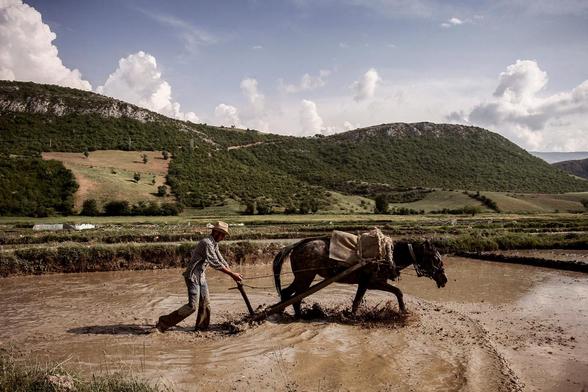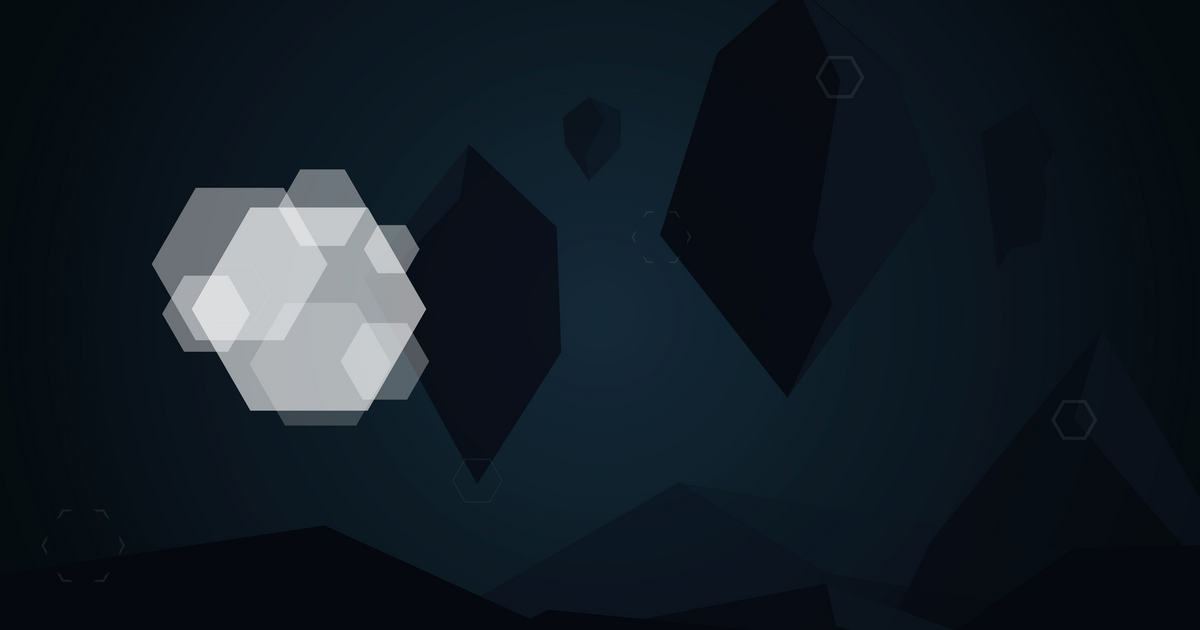#Essay
Zohran Mamdani majored in Africana Studies at Bowdoin College in Maine, at the time Peter Coviello taught the subject there, though he can't remember if New York City's Mayor-elect was his student or not. For LitHub, he explains how he was approached by a New York Times reporter to speak about Mamdani but didn't, because the writer missed the appointment, and what he thinks of the eventual piece, "a wreck, but of a form so pure, so purely Timesian, you almost have to admire it."
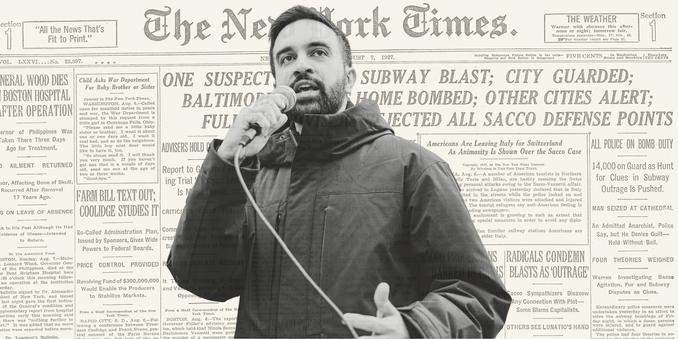
"When you’re Black, every place here might be where you’re from, a forgotten ancestor beneath the soil, all of them pulling on you: Come to us. So, I listened."
Nylah Iqbal Muhammad for The Bitter Southerner: https://bittersoutherner.com/issue-no-12/an-optimistic-quest-in-apocalyptic-times
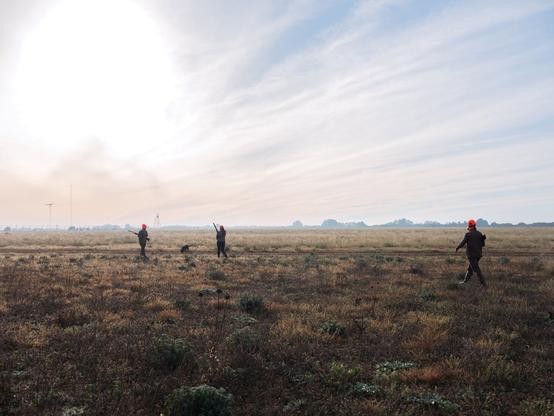
"The age of obedience has learned to shout its servitude in the key of freedom: Don’t tread on me – but please, tell me where to tread. Autonomy has become choreography, a mass performance of self-direction executed to the same beat."
philosophics.blog/2025/10/24/m...
This week's Top 5:
• Haunted pages (Aeon)
• When fame fades (Harper's)
• Cracked open (New York Review of Books)
• Striving forever (The American Scholar)
• Back to blogging (Talking Points Memo)

"In this, I share tech journalist and Bluesky board member Mike Masnick’s informed belief that global centralized moderation is a dead end. And if centralized moderation isn’t a plausible way forward, then experimentation toward genuinely community-led governance of decentralized networks is necessary."
by @kissane

#AvotuIela #Rīga #StreetPhotography #Latvia #Essay
"The earlier internet was a haven, everyone making it up as they went along. You couldn’t use it to buy stuff and have it delivered the next day, but you could communicate with people, old and new friends, anywhere, instantly. A true, astonishing marvel."
By @philgyford: https://www.gyford.com/phil/writing/2025/10/15/1995-internet/
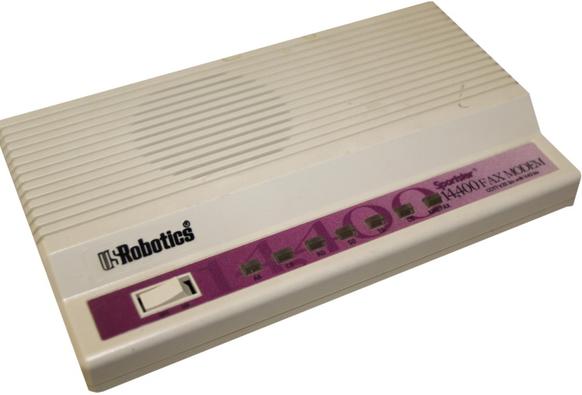
**Harbours and Beaches Alongside a Forgotten Sea: Terra Nova’s Legacy**
"_The legacy of Terra Nova is all around us. You can go to the store to buy bacalao,dry-salted cod,that is nearly identical to what was being made and eaten in 1542. To this day, salt cod is a beloved food in Spanish, Italian, Portuguese, Brazilian, and Caribbean cookery. Fishing is still big business in Canada and New England, heirs to the colonial legacy that began at Terra Nova five centuries ago_"
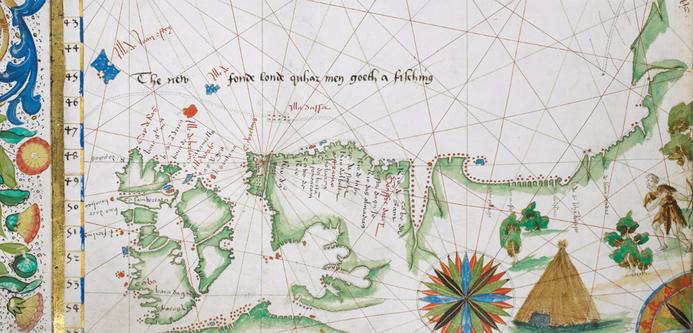
"These organisms are different. They’re a dream, a hypnotic trigger object, a haunting, an essence without body." Maria Pinto chases the mysterious, powerful allure of the truffle in an excerpt from FEARLESS, SLEEPLESS, DEATHLESS, out October 28 via the University of North Carolina Press https://longreads.com/2025/10/16/truffle-farm-fungi-maria-pinto/ #journalism #fungi #mushrooms #truffles #mycology #nature #essay
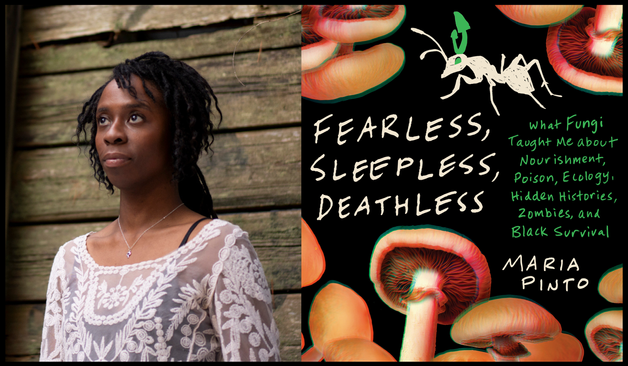
I should calm down and not get so carried away
But I think that's where I draw my strength from, and that's why it's good
I read something and then I get sucked in, my thoughts flow and I have to write something about it.
An essay, a poem, whatever.
I post it and wonder if anyone will read it .
But
if just one person reads it, that's great and I'm happy.
Thank you to everyone who takes the time to read whatever I write.
Qué bueno y qué interesantísimo es esto
**In Defense of Incredulity**
"_Thousands of years ago, Homer’s Odyssey commended incredulity as vital for human survival and success. Long before social media, digital algorithms, and artificial intelligence began to dominate public discourse, imperil diversity of opinion, and diminish our capacity for free, creative, independent thought, the Odyssey cultivated incredulity._"
https://yalebooks.yale.edu/2025/10/07/in-defense-of-incredulity/.
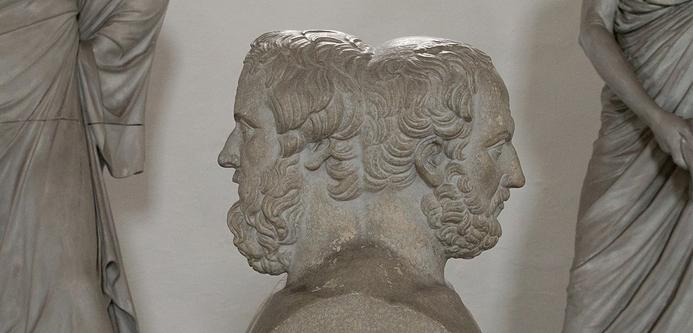
"How often Cirrus pulled me out of my gloomy thoughts, my preoccupations, my melancholic reveries, just by entering a room."
Sy Safransky for The Sun: https://www.thesunmagazine.org/authors/8782-sy-safransky
"I had a sense of obligation to these creatures that likely gave their lives for testing the device implanted in my heart."
Kristin Idaszak for The American Scholar: https://theamericanscholar.org/blood-blue-sky/
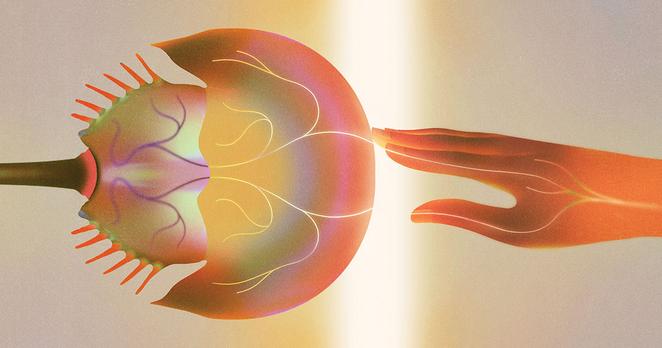
If you’d like to read my Anne Brown Essay Prize–shortlisted piece, you can find it at the link below.
The judges described it as “flinty, telegraphic prose” and “an essay of incredible economy”. A bit like drystone itself, doing what you can with what you have.
https://kristiedegaris.substack.com/p/the-stone-is-heavy-in-my-hands
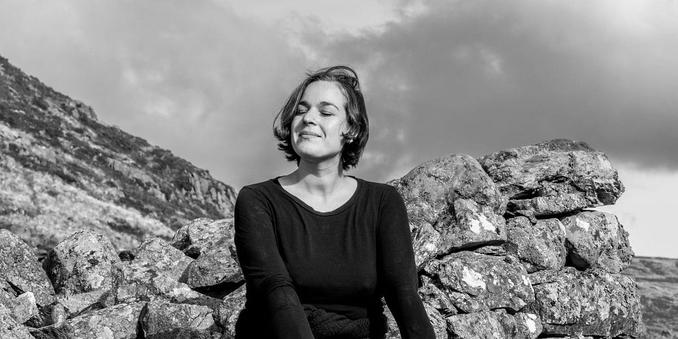
**Why Today’s Humanoids Won’t Learn Dexterity**
"_It looks like humanoid robots will need a sense of touch, and a level of touch sensing that no one has yet built in the lab in order for them to do tasks like the one above which is of the same order of difficulty that millions of workers do all day everyday in some parts of the world._"
https://rodneybrooks.com/why-todays-humanoids-wont-learn-dexterity/.
The Day I Said No to Google – DrWeb’s Domain
A personal essay… from DrWeb
The Day I Said No to Google
“I am probably the only person I know who said ‘no’ to Google in a meeting with Larry Page and Sergey Brin…”
Confession: Given my birthday coming up (hint!), I am older than dirt. Some of the memories remain, thank genes I guess. But, others are foggy. I remember the day, but the exact date escapes me. I remember the meeting, but in many ways, it has blurred into meetings of my life for business. So, I cheated, kinda. You get to decide. Claude, a creative intelligence, assisted me with the writing. I edited. This is what we did together. It felt like the best way to tell this old story now. Let’s travel back to yesteryear.. the Internet was young… One history note, I was the first Webmaster at DIALOG, and employed there from 1995-1997, when along with many others, MAID bought DIALOG, and I was let go, fired. Carry your things out in box time. My time at America Online was December, 1998, Product Manager for AOL NetFind, until November, 1999. Enjoy the memory lane!
The Meeting Above the Shop
The afternoon sun streamed through the windows of that small conference room above a Palo Alto shop, casting long rectangles of California light across our makeshift boardroom table. It was one of those perfect Silicon Valley days where the air itself seemed to hum with possibility, but the fluorescent overhead lights and generic office chairs reminded us this was business, not a social call.
I’d arranged my materials carefully before they arrived—a brief summary report for my AOL team, printed specs for what we needed, bottled water for everyone. The kind of preparation that had become second nature after years in this business [and later becoming DIALOG’s first webmaster dealing with sophisticated databases and searches], now managing search for America Online in this digital Wild West. Twenty-five million AOL users were counting on decisions like this one, though they’d never know it.
When Larry and Sergey walked in, there was something almost academic about them—Larry doing most of the talking while Sergey hung back, observing. Their energy was unmistakably that of people who believed they were onto something big. But belief and business results were different things, as I’d learned the hard way. Perhaps it was like meeting Steve Jobs, early, in his garage.
We think we can scale this in ways nobody else can, Larry was saying, sketching out their vision with the kind of confident hand gestures. You could hear the enthusiasm.
The algorithm they called PageRank sounded revolutionary in theory—ranking pages by how other pages linked to them, like academic citations. Elegant, certainly. But elegant theories didn’t always survive contact with millions of real users hitting your servers every day. Then, at AOL, we were still in the era of typing in code and managing data with spreadsheets, so, yes, after all—proven performance mattered more than brilliant concepts.
The afternoon conversation had that particular rhythm of meetings where both sides already knew the likely outcome. We asked about customers—they had few. Performance metrics under load—they were working on it. Detailed technical specifications—still being refined.
I felt those were all reasonable answers for a startup, but AOL couldn’t run on reasonable answers. We needed proven, and growign solutions, the kind Excite was delivering with their concept-based search algorithm and comprehensive portal approach—news, weather, email, the one-stop destination our users expected. I used Excite, so were many early adopters.
I found myself watching Sergey more than listening to Larry at one point. There was something in his quiet attention that suggested he understood exactly what we were really evaluating. Not just their technology, but their readiness to handle the weight of AOL’s scale and expectations. Maybe he knew, as I was beginning to suspect, that this was more a friendly courtesy call than a serious negotiation.
The meeting wound down with handshakes and the kind of polite enthusiasm that masks mutual recognition—they knew we weren’t ready to bet on an unproven system, and we knew they weren’t ready for us yet. Outside, that sunlit, warm California afternoon continued, indifferent to the small pivotal moment that had just passed in a conference room above a Palo Alto shop.
Later, writing up my report for the team, I found myself thinking about Steve Case back at headquarters in Virginia. Our larger-than-life CEO had built AOL by making bold bets, but also by knowing when to stick with what worked. Excite had customers, track records, proven performance under the kind of load we’d throw at them. Our homework showed the numbers, and it was a future option we felt we had to explore.
Their concept-based searching could understand meaning beyond mere keyword matching—sophisticated technology that had already proven itself with millions of daily users. It wasn’t glamorous compared to Larry and Sergey’s academic theories, but it was safe. And yet, choosing Excite felt like the next step, of what would be many.
I never found out if my report made it all the way to Case’s desk, but I liked to think it did—one small decision in the endless stream of choices that kept twenty-five million people connected to the emerging world of the web. At the time, it felt like the right call. Careful. Responsible. Business-smart.
The irony, of course, would only become clear later.
History Snapshots: Search Before Google
Archie (1990)
Before the web itself existed, Archie emerged at McGill University in 1990 as the first widely used search tool. It did not crawl the content of files, but instead indexed file names on FTP servers, creating the first searchable index of distributed online information. While crude by later standards, Archie was revolutionary: for the first time, a user could query a remote database and discover resources without browsing manually. The very idea of building an automated index to navigate digital information became a foundation stone for everything that followed.
WebCrawler (1994)
By 1994, the World Wide Web needed something more than Archie. Brian Pinkerton’s WebCrawler, launched at the University of Washington, became the first engine to allow full-text searches of web pages. Suddenly users could search within page content, not just titles or filenames, and the results reflected the words as they actually appeared on the page. This was a dramatic leap forward for usability, and WebCrawler quickly reached millions of queries per day. It also popularized the notion that search engines could serve ordinary consumers, not just information professionals or academics.
AltaVista (1995)
Introduced in December 1995 by Digital Equipment Corporation’s research team, AltaVista was a marvel of its time. It featured an enormous index, lightning-fast crawling, and support for natural language queries at a scale that felt futuristic. For many users, AltaVista was their first exposure to advanced search operators, real-time translations, and near-instant indexing. It quickly became one of the most visited destinations on the web, demonstrating how technology and infrastructure could turn search into a mainstream activity. In many ways, AltaVista defined what people expected a modern search engine to be.
Excite (1995)
Launched commercially in late 1995, Excite took a different approach by expanding search into a broader “portal” experience. Beyond simply indexing the web, Excite offered news, weather, email, and community features that encouraged users to stay on its site. Its acquisitions and partnerships helped it grow into a household name, and by the late 1990s it was considered one of the most important online brands. Excite’s strategy was not only to provide answers but to create an ecosystem of services, an approach that reflected the business logic of the early Internet era: keep users inside your walls, and monetize their time.
AOL NetFind (1997)
In March 1997, AOL — already the largest Internet gateway in America — launched its own branded search engine called NetFind. Instead of building new technology, AOL partnered with Excite to power the service, ensuring scale and reliability for its millions of subscribers. For users, it meant search was seamlessly integrated into the familiar AOL interface. For the company, it was a strategic move to control not only access to the Internet but also discovery of information within it. The choice to align with a proven engine like Excite over a then-unknown upstart like Google reflected a natural preference for stability and trust in the late 1990s corporate environment.
Inktomi (1996)
Founded by Eric Brewer and Paul Gauthier in 1996, Inktomi was often described as the “early Google.” Unlike portals, it focused on scale and infrastructure, indexing more than 100 million web pages and delivering results in fractions of a second. It licensed its search technology to popular services including HotBot, Yahoo, MSN, and Disney’s Internet Guide, making it a behind-the-scenes powerhouse of the search ecosystem. For a time, Inktomi appeared destined to dominate the field, with a high-profile IPO and enormous venture support. But within a few years, it would be eclipsed by Google’s more elegant algorithmic model — proof that even the giants of one generation could quickly become footnotes in the next.
Bibliography
- Ars Technica. (2024, May 16). Archie, the Internet’s first search engine, is rescued and running. Ars Technica. https://arstechnica.com/gadgets/2024/05/archie-the-internets-first-search-engine-is-rescued-and-running/
- Capitol Technology University. (2020, February 3). Alan Emtage, creator of Archie, the world’s first search engine. Capitol Technology University. https://www.captechu.edu/blog/alan-emtage-creator-of-archie-worlds-first-search-engine
- Encyclopedia.com. (2018, May 14). WebCrawler. Encyclopedia.com. https://www.encyclopedia.com/science-and-technology/computers-and-electrical-engineering/computers-and-computing/webcrawler
- History of Information. (n.d.). Brian Pinkerton develops the “WebCrawler,” the first full text web search engine. History of Information. https://www.historyofinformation.com/detail.php?id=1067
- McGill University. (2021). The first Internet search engine. McGill 200: Bicentennial. https://200.mcgill.ca/history/creation-of-the-first-internet-search-engine/
- Search Engine Land. (2009, January 12). AOL search: The history of AOL’s search engine. Search Engine Land. https://searchengineland.com/aol-search-history-16238
- StackScale. (2021, September 10). Archie, the first Internet search engine. StackScale Blog. https://www.stackscale.com/blog/archie-internet-search-engine/
- TechRadar. (2025, September 10). Long before Google took the world by storm, this search engine paved the way for everyone. TechRadar Pro. https://www.techradar.com/pro/long-before-google-took-the-world-by-storm-this-search-engine-paved-the-way-for-everyone
- Web Design Museum. (2022). Archie – The first search engine (1990). Web Design Museum. https://www.webdesignmuseum.org/web-design-history/archie-the-first-search-engine-1990
- Web Search Workshop. (2009). A brief history of the Excite search engine. Web Search Workshop (Australia). https://www.websearchworkshop.com.au/info-excite.php
- Web Search Workshop. (2009). A brief history of the Inktomi search engine. Web Search Workshop (Australia). https://www.websearchworkshop.com.au/info-inktomi.php
- Wikipedia contributors. (2025, August 24). Archie (search engine). In Wikipedia. https://en.wikipedia.org/wiki/Archie_(search_engine)
- Wikipedia contributors. (2025, June 5). WebCrawler. In Wikipedia. https://en.wikipedia.org/wiki/WebCrawler
- Wikipedia contributors. (2025, August 30). AltaVista. In Wikipedia. https://en.wikipedia.org/wiki/AltaVista
- Wikipedia contributors. (2025, September 12). AOL. In Wikipedia. https://en.wikipedia.org/wiki/AOL
- Wikipedia contributors. (2025, September 10). Dialog (online database). In Wikipedia. https://en.wikipedia.org/wiki/Dialog_(online_database)
- Wikipedia contributors. (2025, September 1). Excite. In Wikipedia. https://en.wikipedia.org/wiki/Excite
- Wikipedia contributors. (2025, September 2). Inktomi. In Wikipedia. https://en.wikipedia.org/wiki/Inktomi
#1999 #2000 #2025 #AI #AmericaOnline #AOL #California #Essay #Excite #Google #History #Irony #Opinion #PaloAlto #PersonalHistory #Science #searchTechnology #Technology #UnitedStates #UniversityAvenue
**The world needs peasants**
"_If the peasant economies of Latin America, Africa and Asia are destroyed, our food system will collapse. Given the vast numbers involved, meanwhile, even small ecological deteriorations may force millions of new refugees off the land._"
https://aeon.co/essays/the-planet-and-human-social-life-depend-on-peasant-farmers.
